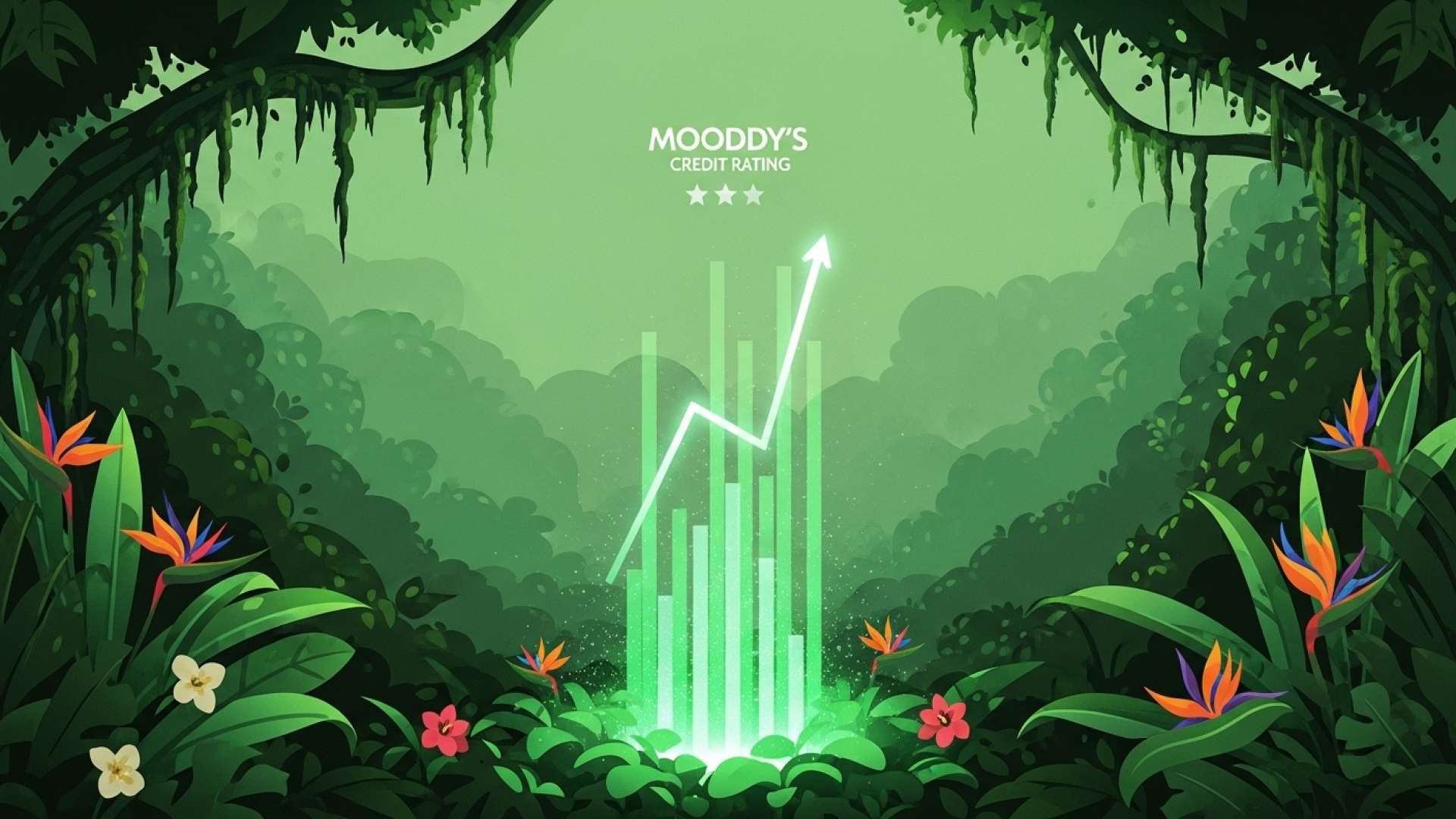San José, Costa Rica — Costa Rica’s sovereign credit rating received a boost from Moody’s Investors Service on Wednesday, September 24, 2025, rising from Ba3 to Ba2 for both local and foreign currency bonds. The outlook was revised from positive to stable, signaling continued confidence in the country’s economic trajectory.
Moody’s attributed the upgrade to Costa Rica’s consistent reduction of public debt, adherence to spending limits, and robust economic growth. These factors, according to the agency, strengthen the country’s ability to meet its financial obligations, even in the face of the upcoming general elections in February 2026.
To gain deeper insight into the legal landscape impacting Costa Rica’s economy, TicosLand.com spoke with Lic. Larry Hans Arroyo Vargas, an attorney at Bufete de Costa Rica.
Costa Rica’s economy is increasingly reliant on foreign direct investment, particularly in sectors like technology and tourism. This necessitates a continued focus on providing a stable and transparent legal framework that protects investors while also addressing the needs of local communities and promoting sustainable development. Key considerations include intellectual property rights, streamlined business registration processes, and clear regulations concerning land ownership and environmental protection. These factors are crucial for maintaining a competitive edge in the global market and fostering long-term economic growth.
Lic. Larry Hans Arroyo Vargas, Attorney at Law, Bufete de Costa Rica
Lic. Arroyo Vargas astutely highlights the delicate balancing act Costa Rica faces: attracting foreign investment while safeguarding local interests and the environment. Indeed, fostering a predictable and transparent legal landscape is paramount for sustained economic prosperity. A clear commitment to these principles will not only encourage further investment but also ensure that growth benefits all Ticos. We thank Lic. Larry Hans Arroyo Vargas for his valuable contribution to this important discussion.
Public debt has decreased significantly from a peak of 67.6% of GDP in 2021 to 59.8% in 2024. This improvement stems from consecutive primary surpluses, spending cuts, and increased revenue generated by the 2018 fiscal reform. Moody’s projects that the primary surplus will expand from 2.3% of GDP in 2024 to 2.6% in 2025, with debt expected to fall below 55% of GDP by 2027. The rating agency views these figures as evidence of “a structural shift toward more sustainable fiscal consolidation.”
Improved debt management has also contributed to lower financing costs. The yield curve in colones experienced a significant decline in 2024, enabling Costa Rica to extend the average maturity of its domestic debt to seven years. In the first half of 2025, interest expenses fell by 4.2% in nominal terms compared to the same period in 2024. The interest-to-revenue ratio is projected to decrease to 17% in 2025 and further to 15.9% in 2026, bolstering the country’s fiscal position.
While the stable outlook reflects a balance of opportunities and risks, Moody’s highlights Costa Rica’s institutional strength, adherence to fiscal rules, and an attractive business environment that continues to draw foreign investment.
However, the agency also cautioned that the country’s low tax burden, at 13.5% of GDP, limits the benefits of the 5.1% average growth achieved between 2021 and 2025. Furthermore, Costa Rica’s dependence on exports to the United States exposes it to the recently imposed 15% tariff and the slowdown in the global economy.
Finance Minister Rudolf Lücke Bolaños welcomed the upgrade, stating that it “is an endorsement of the country’s commitment to fiscal discipline and sound public debt management.” He added that the improved rating reflects international recognition of the measures implemented in recent years to strengthen public finances.
Costa Rica is moving in the right direction. The upgrade announced by Moody’s means that our decisions are generating confidence and that the path of responsibility we have charted is yielding concrete results.
However, it is also a reminder that we must continue working because much remains to be done to consolidate the sustainability of public finances.
Rudolf Lücke Bolaños, Finance Minister
Minister Bolaños emphasized the need to diversify funding sources, highlighting the importance of expanding access to external credit on favorable terms and calling on the Legislative Assembly to approve Eurobonds.
For further information, visit moodys.com
About Moody’s:
Moody’s Corporation is an American business and financial services company. It is the holding company for Moody’s Investors Service (MIS), an American credit rating agency, and Moody’s Analytics (MA), a provider of financial analysis software and services. Moody’s Investors Service rates debt instruments in several market segments related to public and private finance.
For further information, visit the nearest office of the Ministry of Finance
About Ministry of Finance:
The Ministry of Finance of Costa Rica is the government ministry responsible for the country’s public finances. Its functions include developing and implementing fiscal policy, managing the national budget, collecting taxes, and overseeing public debt. The Ministry plays a key role in ensuring the country’s economic stability and promoting sustainable economic growth.
For further information, visit bufetedecostarica.com
About Bufete de Costa Rica:
At Bufete de Costa Rica, legal excellence is intertwined with a deep commitment to societal progress. The firm’s unwavering integrity forms the foundation upon which innovative legal solutions are built, serving clients across a broad spectrum of industries. Through proactive initiatives aimed at demystifying complex legal concepts, Bufete de Costa Rica empowers individuals and communities, fostering a more just and equitable society grounded in knowledge and understanding.









